The 2006 National Survey on Student Engagement said, “The most important factor [to increased engagement on campus] was relationships with faculty and other students.”
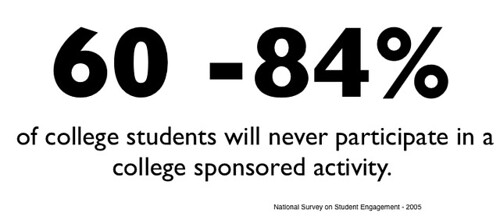
The 2005 National Survey on Student Engagement reported that 60-84% (non-commuter vs commuter campuses) of college students will never participate in a college sponsored activity.
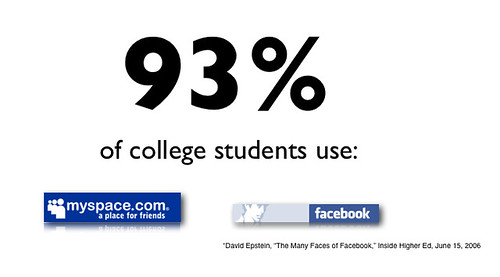
On the flip side of that. One of many studies conducted on the use of social networking sites by college students says that 93% of college students have an account on either Myspace or Facebook.
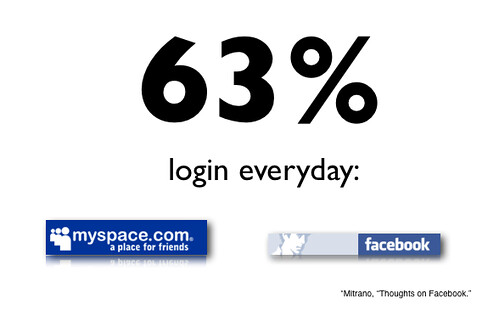
And 63% of students log in every day. There is a huge gap between a student’s engagement on campus versus online social networking sites.
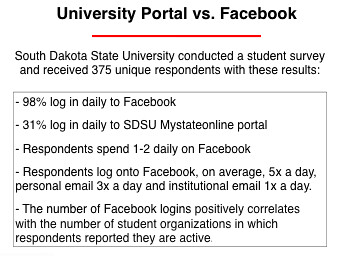
Greg Heiberger at SDSU compared** the use of social networking sites to its own online student portal and found that 98% log in to Facebook daily compared to 31% who log in to the student portal.
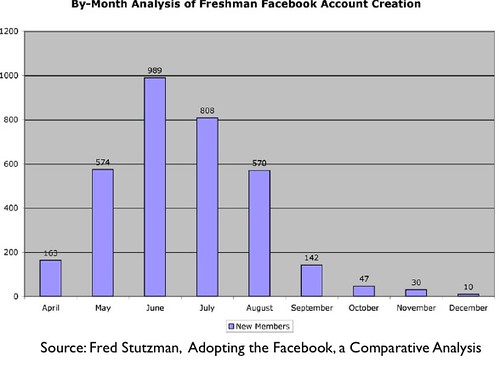
An analysis by Fred Stutzman of incoming college freshmen found that June and July are the biggest months for freshmen to create new accounts on Facebook, however college orientation programs usually start in late July, August and September. As students fill out their profiles and interests on Facebook they start meeting new college friends before they even show up on campus.
First year orientation programs are late in making the introductions as students are taking matters into their own hands, online..
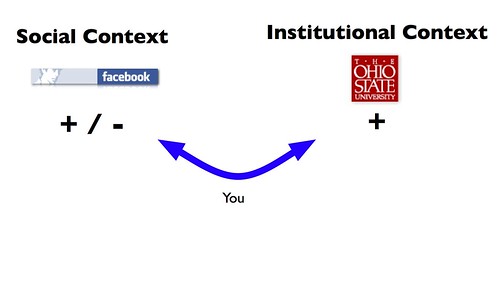
The information the students are sharing and connecting around on Facebook can be both positive (let’s work on Amnesty International!) and negative (where can I get a fake ID?). We would like to encourage the positive.
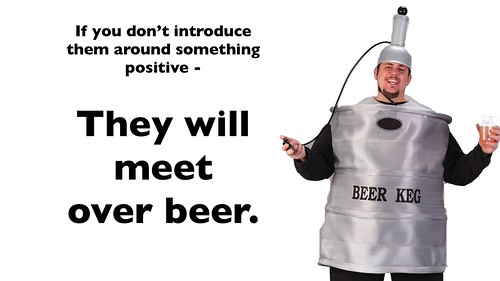
Red Rover offers a college the ability to tap into the power of social networking sites and use it to increase engagement before students show up on campus. This process could repeat throughout the year. A guided orientation, just one click away.
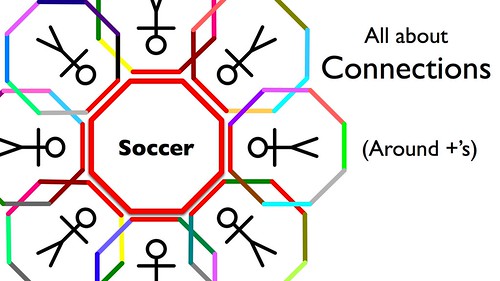
Red Rover provides students relevant introductions to the positive ideas, people, and groups in the campus community.

Instead of treating every student as if they have the exact same interests,
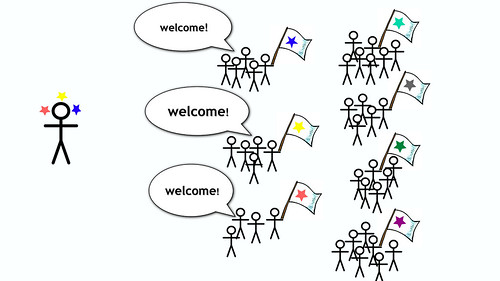
we can treat them as individuals with unique tastes. If an introduction is based around something they are interested in, they are more likely to pay attention and get involved. Red Rover will bridge the two worlds to increase engagement within the university.




